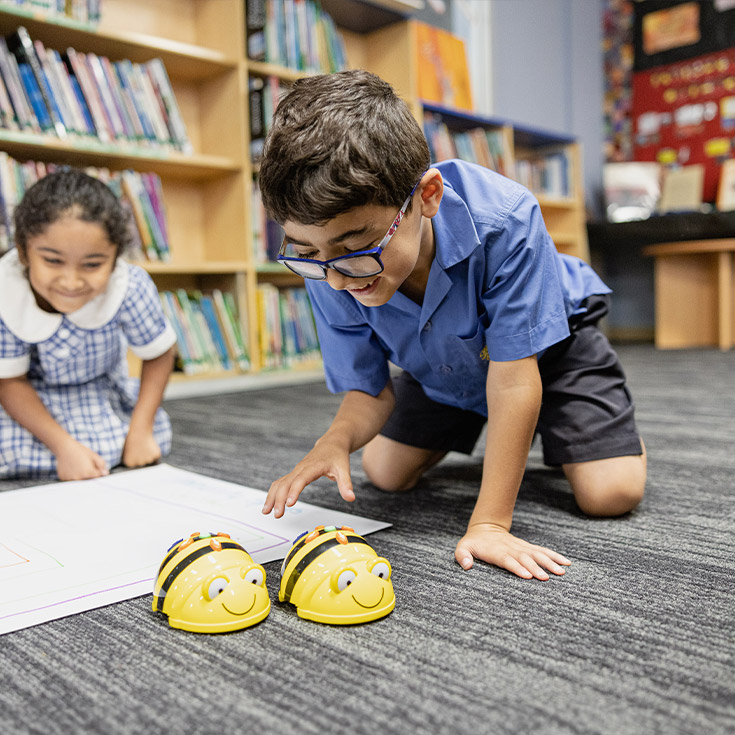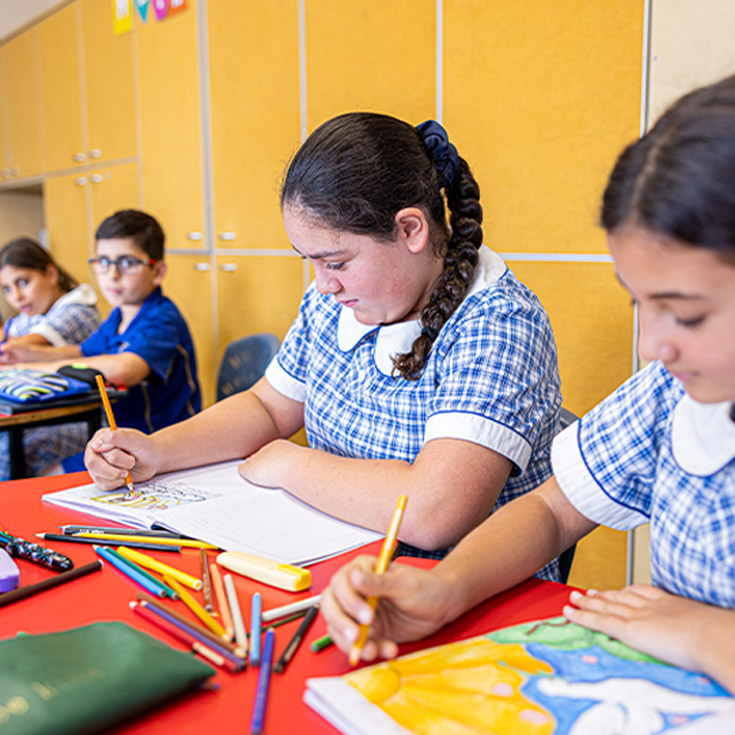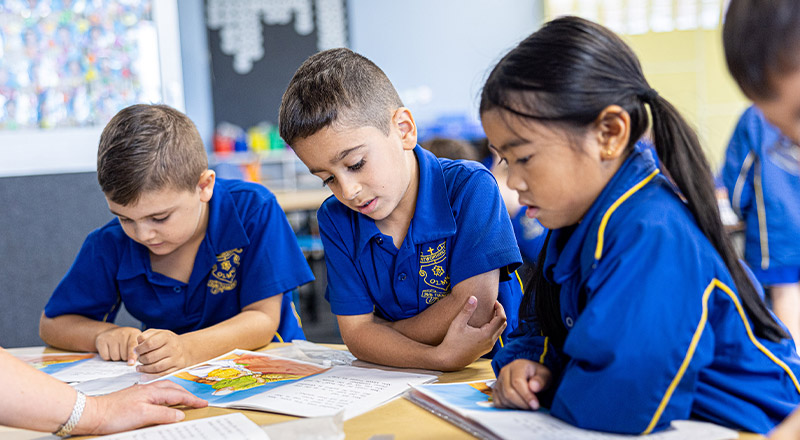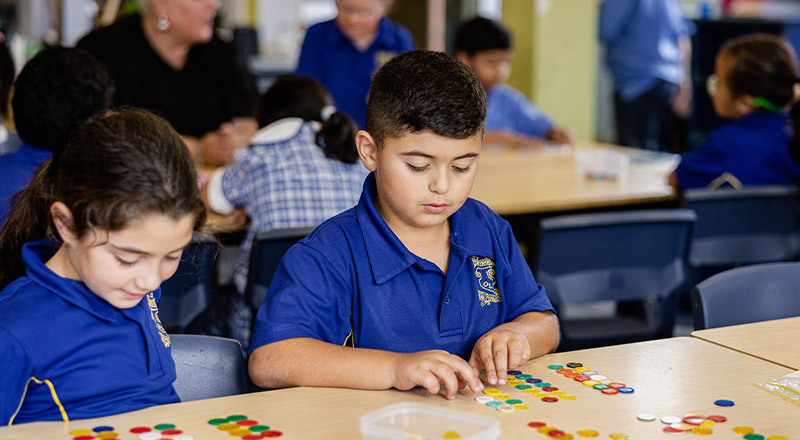Educating for the future
The learning journey at Our Lady of Mount Carmel honours the developmental stages in a student’s life. Based on leading educational research and the best of today’s technologies, we prepare students for the future by teaching them how to think critically and creatively, how to communicate effectively and how to lead and work both independently and collaboratively.
Educating for the future

The key learning areas
We follow the NSW Education Standards Authority (NESA) approved curriculum in the key learning areas of:
Religious Education
As a Catholic school we also have a strong religious dimension that runs through all the KLAs and is also formally recognised as the KLA of Religious Education.
Our Lady of Mount Carmel students take part in formal Religious Education every day, based on the new Catholic Schools Parramatta Diocese curriculum, Encountering Jesus. This curriculum invites all students to consider how the teachings of Jesus Christ can apply to their lives.
Throughout their school journey, students immerse themselves in the sacred practice of prayer and interpreting scripture. Year 6 students love attending the ‘Encounter’ experience, a contemporary faith celebration with students from around the diocese.
Religious Education

At Our Lady of Mount Carmel, we promote an inner delight in life and learning in every child.
Every student is nurtured and challenged to explore, investigate and problem solve through explicit learning and teaching.
The key elements of our educational philosophy are:
- foundation based on the teachings of Christ
- partnership with home, parish and school
- collaborative learning community of parents, staff and students
- rigorous and high quality teaching
- explicit teaching of skills in cooperative learning, problem solving, investigative and critical thinking
- experiences that promote personal responsibility
As the building blocks for all learning, we have a strong focus on Literacy and Numeracy throughout our learning and teaching programs.

Literacy
From 2024, we have begun to use a program called ‘InitiaLit’, an evidence-based literacy program that provides core knowledge and strong foundations so children become successful readers and writers.
From K-6, students build and consolidate their understanding of the finer elements of reading and writing, such as narrative techniques and sentence structures. Our Cooperative Reading groups are dynamic places for students to discuss new books, fostering a lifelong love of reading.
Reading Recovery and Literacy Intervention is available for students requiring additional support.

Numeracy
Learning about maths is fun at OLMC with events like ‘Star Wars Maths Day' and the Mathematics Olympiad.
Throughout their schooling, students are given the opportunity to investigate, explore and apply mathematical concepts to real-life situations. Our teachers apply the systematic ‘spiral of inquiry’ model to improve student performance in mathematics.
Students needing extra support receive early intervention via our Extending Mathematical Understanding program.
We offer a varied curriculum that is engaging and relevant!
Contact Our Lady of Mount Carmel TODAY to learn more about our innovative learning community.

